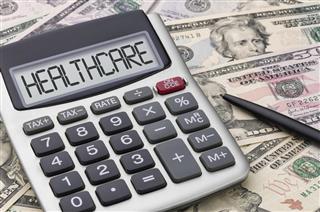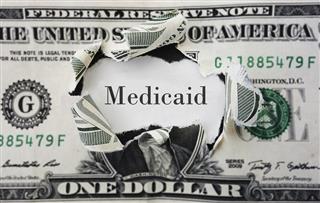
Medical billing and coding is emerging as one of the fastest growing sectors in the economy. It may not offer the highest paying jobs, however, one can draw a handsome monthly or annual remuneration. Know more about the medical billing and coding salary range in this article.
Medical billing and coding is a direct consequence of the need to expedite paperwork, related to the diagnosis and treatment of patients and the processing of health insurance claims. However, it is mainly concerned with the health insurance industry and acts as the processing system for the claims made by patients through their health care providers or physicians to the insurance company. Medical billing and coding professionals are required to translate the diagnosis and treatment procedures applied by the physician, into financially verifiable costs, using codes and protocols laid down by the industry and government.
This is an upcoming industry sector which shows a lot of promise. With the recent expansions in the healthcare sector promised by the federal government, there will surely be a rise in demand for such highly trained professionals throughout the country. This may be a good time to enter this service industry and for those already in it to upgrade their skills through various certificate programs.
Medical Billing and Coding Professional – Salary Data
| Mean Annual Wages | $30,170 |
| Mean Hourly Wages | $14.51 |
| Employment Opportunities | Ohio, California, Texas, Florida, Pennsylvania |
| Sector Growth (2010-2020) | 20% |
*Salary data from the Bureau of Labor Statistics (BLS).
Salary structures depend on whether you are working with a healthcare provider such as a large hospital or out of a doctor’s reception. There are also professionals who freelance and move from job to job as per the demands. The salary range for medical billing professionals falls between $20,000-$35,000 annually. When combined with medical coding experience the range expands to between $30,000 to $40,000. More senior professionals who have been in the industry for several years can make up to $70,000 a year. Working for a healthcare provider is beneficial as they provide job emoluments like insurance, leaves and other benefits as they would to regular employees. On the downside, the pay scales for this particular industry are still very average, as compared to nurse practitioners or medical assistants who make more money.
Concept of Medical Billing and Coding
Medical billing and coding came into existence, when in the 1990s, the United States Government made some amendments in the legislation concerning medical insurance. The government made it mandatory for the health care service providers to maintain medical records pertaining to insurance, medical billing and claims, insurance documents, receipts received from the medical insurance companies etc. Therefore, as a solution to this cumbersome work, health care organizations, hospitals and large clinics began outsourcing to companies which hired billing and coding professionals trained specifically to handle such workload. With the development of software and hardware modules particular to medical documentation, this has become a full-fledged industry, with outsourcing now happening to even overseas companies.
What is a Medical Billing Job?
As a professional rendering medical billing services, your principal area of work is the medical insurance sector. The following are some of the tasks carried out by medical billing professionals.
- Obtaining the updated patient records and data from the physician or staff of the healthcare provider.
- An analysis of the patients medical record pertaining to the transaction, containing personal information such as name, residence address, social security details and also the details of the treatment.
- An evaluation of the medical diagnosis and the treatment involved, to assess the amount of service to be billed as payment.
- Converting the service rendered into codes, as laid out by the Current Procedural Terminology (CPT) codes of the American Medical Association (AMA).
- Transmitting the claim invoices to the insurer.
- Follow-up with the insurer as to the outcome of the claims. Processing documents relating to the acceptance or denial of claims.
The role of a medical billing professional is a challenging one as there are multiple regulations and codes to be followed during the billing cycle.
What is a Medical Coding Job?
Although both these terms are clubbed to form the medical billing and coding jobs, medical coding is a completely different thing. Here are a few tasks a medical coding executive will perform.
- As a medical coder you mainly assign codes to the various diagnostic procedures that help in the financial reimbursement of the insurance amount to the patient from the insurance companies.
- One will have to work for research and development related to patient health care services.
- Medical coding is a technical field where one has to achieve proficiency in code classification and assignment.
- These codes can be part of Current Procedural Terminology (CPT), International Classification of Diseases (ICD-9-CM codes) or the Healthcare Common Procedure Coding System (HCPCS) codes.
- A thorough knowledge of the medical procedures, insurance regulations and compliance guidelines for processing claims is an absolute must.
- In-depth knowledge of CPT, HCPCS Level II and ICD-9-CM and the updated ICD-10-CM coding books, the very core resource materials on medical coding.
Also, the coders need to be well acquainted with diseases, treatments, medicines and above all the human anatomy itself. It is a job which involves dealing with minutiae, without allowing for the smallest error, as it can affect the outcome of an insurance claim.
Medical Billing and Coding Certifications
Although the law does not specifically require billing and coding professionals to be certified, there is a growing demand for qualified professionals in this field from the healthcare providers, physicians and patients themselves. There are several certification examinations helpful in enhancing the credibility and marketability of a medical billing and coding professional.
American Medical Billing Association – CMRS Certification
The Certified Medical Reimbursement Specialist certification from the AMBA is one of the most highly sought after courses for certification in this field. Having been conducted for over a decade the program has gained a certain respectability in the profession, as a means of promoting ethical and accurate medical billing practices in the country. The certification pays special heed to the requirements of the coding aspect of the job with professionals being extensively tested on ICD9, CPT4 and HCPCS Coding. Some features of the exam are:
- A 16-section question paper, requiring 800 responses.
- 85% ceiling for successful certification.
- 45 days for preparation and the certificates will be mailed within 3 to 4 weeks of the examination.
- 2 retries are allowed free of cost, but only 30 days apart.
American Health Information Management Association (AHIMA) – RHIA Exam
Another similar and useful certification one can opt for is the Registered Health Information Administrator (RHIA) exam offered by the AHIMA. It also aims to enhance the skills of medical professionals in the billing and coding business by imparting skills in analyzing patient data, billing procedures, insurance and other claim related information, coding requirements and so on. However, the eligibility requirements for this course are a tad on the specific side, requiring an accredited degree in Health Information Management.
It is advisable to work at some professional medical billing and coding office in the initial days of your career. This would help in gaining some industry expertise at work. Medical billing and coding professionals are also offered managerial and administrative positions at hospitals and other health care organizations once they have a certain level of experience in the field.





